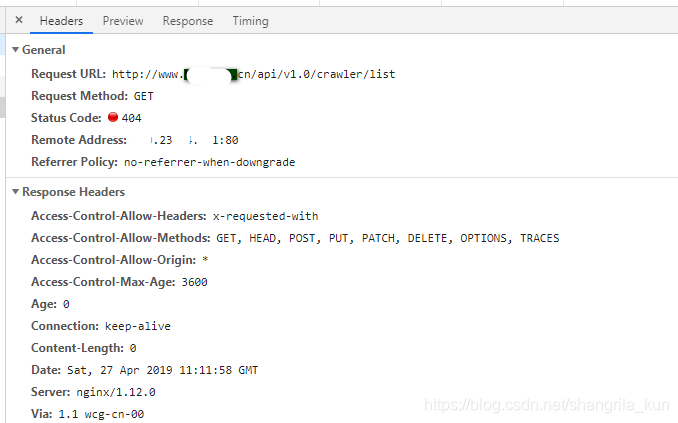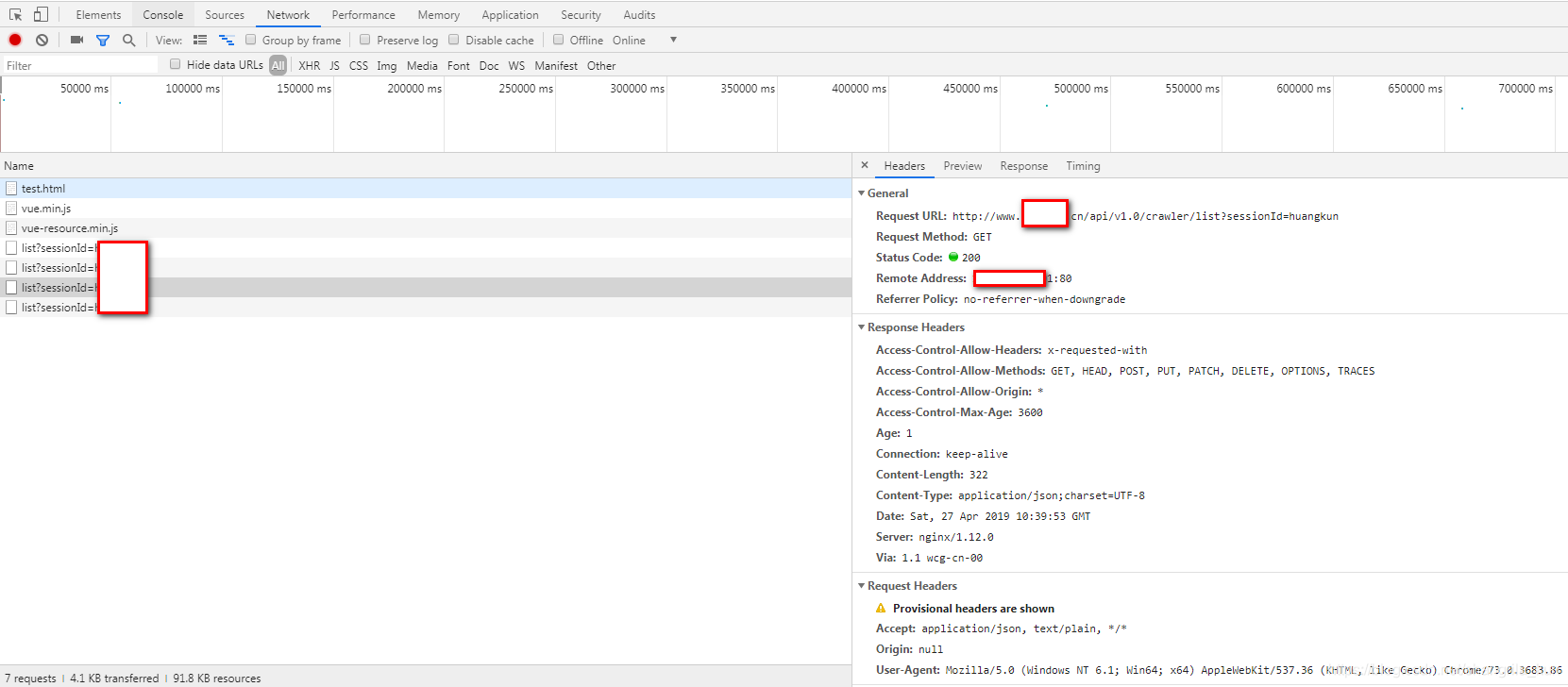背景
- 后台接口
@GetMapping(value = "/list")
@ResponseBody
Response<List<CrawlerManage>> list(@RequestParam(value = "sessionId") String sessionId){
String redisResult = jedisPool.getResource().get(sessionId);
Response<List<CrawlerManage>> r = new Response<>();
if(MySessionCheckUtil.checkIsAdmin(redisResult)){
r= r.setSuccessResult(BaseConstant.SUCCESS_MSG,crawlerManageService.listAll());
return r;
}else {
r = r.setNoPerssionResult(BaseConstant.NO_PERMISSION,null);
return r;
}
}
根据后台接口可知
前端请求方式因为GET
Content-typer:application/x-www-form-urlencoded
- 错误请求一
list(){
this.$http.get(
'http://www.xxxx.cn/api/v1.0/crawler/list',
{
sessionId:'xxxxxx'
}).then(res => {
if(res.data.code==1){
alert(res);
}
if(res.data.code=='500'){
alert(res.data.message);
}
})
}
- 错误效果
- 问题分析
vue GET传递参数要加上params。否则接收不到参数。params中的参数是附带在url上的。
补充:上面这句话不够完成,通过查看这位朋友的博客,有兴趣的可以点进去看下:使用axios做vue中的交互(get),这篇文章说到不加params,可以在url上附带参数进行传参。当然,还是推荐使用params,因为如果采用url形式,如果入参个数较多,则拼接的url就比较长了。
- 正确请求
list(){
this.$http.get(
'http://www.xxxxxx.cn/api/v1.0/crawler/list',
{
'params':{
sessionId:'xxxxxxxxx'
}
},
{
'headers': {
'Content-Type': 'x-www-form-urlencoded'
}
}).then(res => {
if(res.data.code==1){
alert(res);
}
if(res.data.code=='500'){
alert(res.data.message);
}
})
}
- 正确请求二
此处headers内没有定义Content-type也请求成功了
list(){
this.$http.get(
'http://www.xxxxx.cn/api/v1.0/crawler/list',
{
'params':{
sessionId:'xxxxxxx'
}
}).then(res => {
if(res.data.code==1){
alert(res);
}
if(res.data.code=='500'){
alert(res.data.message);
}
})
}
- 效果图
补充:现在VUE官方推荐使用axios vue-resource不更新了,推荐使用axios,axios的使用方法可参考https://www.kancloud.cn/yunye/axios/234845
- 为什么Content-typer:application/x-www-form-urlencoded加与不加都没影响了
对于get方式,参数是跟在url后边,是否接收到参数与Content-Type无关,无论是application/json还是application/x-www-form-urlencoded.
完整测试例子
这个测试例子其实没必要放的,想了想,或许可以方便大家直接复制并进行测试,就业附带如下,没有需要的话,可以不用往下看了。
<!DOCTYPE html>
<html>
<head>
<meta charset="utf-8">
<title>Vue get 测试实例</title>
<script src="https://cdn.staticfile.org/vue/2.2.2/vue.min.js"></script>
<script src="https://cdn.bootcss.com/vue-resource/1.5.1/vue-resource.min.js"></script>
</head>
<body>
<div id="app">
<button type="button" @click="list()">点我</button>
</div>
<script>
new Vue({
el: '#app',
data: {
sites: [
{ name: 'Runoob' ,index:'1' },
{ name: 'Google' ,index:'2' },
{ name: 'Taobao' ,index:'3' }
]
},
methods: {
list(){
this.$http.get(
'http://www.xxxxx.cn/api/v1.0/crawler/list',
{
'params':{
sessionId:'xxxxx'
}
}).then(res => {
if(res.data.code==1){
alert(res);
}
if(res.data.code=='-1'){
alert(res.data.message);
}
})
}
}
})
</script>
</body>
</html>


